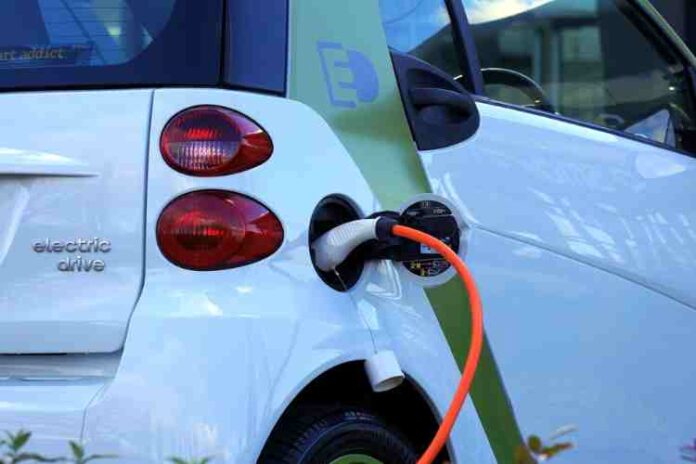With the increasing popularity of electric vehicles, motorists have more demands on their performance and specifications. For example, EV charging time is one of the most important factors that car buyers consider when buying an eco-friendly car. In addition, the accessibility of charging stations also plays a crucial role when deciding on a particular electric car. The point is that there may not be a developed network of public EV charging stations. That’s why car manufacturers have been focusing on developing electric vehicles that offer the fastest charging times. Let’s take a look at the most common EV charging options and outline some top EVs available on the market that have no problems with swift charging.
Types of Electric Vehicle Chargers
Charging an electric vehicle can be done with the help of different methods and appliances, each with its own charging speed. The most common types of EV charging include:
- Level 1 Charging, also known as Trickle Charging. It’s the slowest form of EV powering and involves plugging the car into a standard 220V household wall outlet. While it’s the most accessible option, it usually takes several hours to fully charge the vehicle. In addition, specialists don’t recommend overusing this method and advise consulting with an electricity provider to avoid any issues.
- Level 2 Charging, or AC Charging. It utilizes a special wallbox that operates at a higher voltage than a standard wall outlet and powers an electric car 3–4 times faster. The charging time typically varies from a few hours to overnight.
- DC Fast Charging. This is the fastest charging option available for electric vehicles. Usually, public charging stations with a power rating of 50 kW and above are used. With the help of direct current (DC) power, you can recharge 80% of the battery in just 20–30 minutes. As a rule, DC fast charging stations are located along major country highways and in urban areas.
When buying an electric vehicle, it’s essential to consult with the manufacturer or auto dealer in order to choose the most suitable EV charging option for a particular car model.
Tesla Model S
This Tesla model is recognized as one of the most advanced electric vehicles, and it stands out with a range of around 400–520 miles (643–837 km), depending on the version and battery configuration. In addition, the engineers have made remarkable steps in charging technology with the Tesla Model S version. The vehicle is specifically designed to utilize Tesla’s powerful Supercharger network, enabling fast charging. Thanks to the Supercharger V3, the Model S can achieve up to 200 miles (approximately 322 km) of range in a mere 15 minutes, positioning it as one of the swiftest-charging electric cars currently on AutoBidMaster.
Porsche Taycan Turbo
Porsche has made a remarkable entry into the electric vehicle market with the Taycan Turbo. It’s not only a high-performance electric sports car that produces up to 517 hp but also offers impressive charging capabilities thanks to its 93.4 kWh of battery capacity. With a peak charging rate of 270 kW, the Taycan Turbo can reach an 80% charge in just 22.5 minutes. It means that drivers can spend less time waiting at charging stations and more time on the road, enjoying a powerful and smooth ride.
Audi e-tron GT
Following a list of the top fast-charging EVs, we should mention the powerful Audi e-tron GT model. The key specifications for the basic Audi e-tron configuration are 469 hp of electric engine power, 240 miles (386 km) of range per full charge, and an impressive 93.4 kWh battery capacity. With a charging rate of up to 270 kW, the e-tron GT can charge to 80% in around 23 minutes. This makes it a good choice for individuals looking for a premium electric vehicle with a full list of modern features.
Volkswagen ID.4
When discussing EVs with quick charging capabilities, this modern electric car is also worth your attention. The ID.4 configuration can charge from 5% to 80% in roughly 38 minutes of the DC charging, with a maximum rate of 125 kW. A 201-hp electric engine and a 260-mile range make the vehicle a practical solution for everyday use, allowing drivers to swiftly recharge their Volkswagen ID.4 while going about their daily business.
Chevrolet Bolt EV
At first glance, you may think that this tiny electric vehicle model has nothing to make it stand out. However, that’s not true at all! With 200 hp of performance and 65 kWh of battery capacity, the Chevrolet Bolt EV hatchback also provides impressive charging efficiency. Boasting a peak charging rate of 55 kW, the Bolt EV can add approximately 100 miles (ca. 161 km) of range in around 30 minutes of DC fast charging. All these features make the vehicle an ideal electric car that caters to the needs of numerous buyers.
Summing Up
As the demand for electric vehicles grows, automakers are focusing on designing vehicles with faster charging capabilities to meet the needs of motorists. And they have achieved significant results in that. As some famous examples, we can outline the Tesla Model S, Porsche Taycan Turbo, Audi e-tron GT, Volkswagen ID.4, and Chevrolet Bolt EV. These electric vehicles have outstanding charging speeds, making them great solutions for drivers who value their time and comfort. As technology advances, we should expect even greater improvements in charging times, boosting the adoption of electric vehicles.


